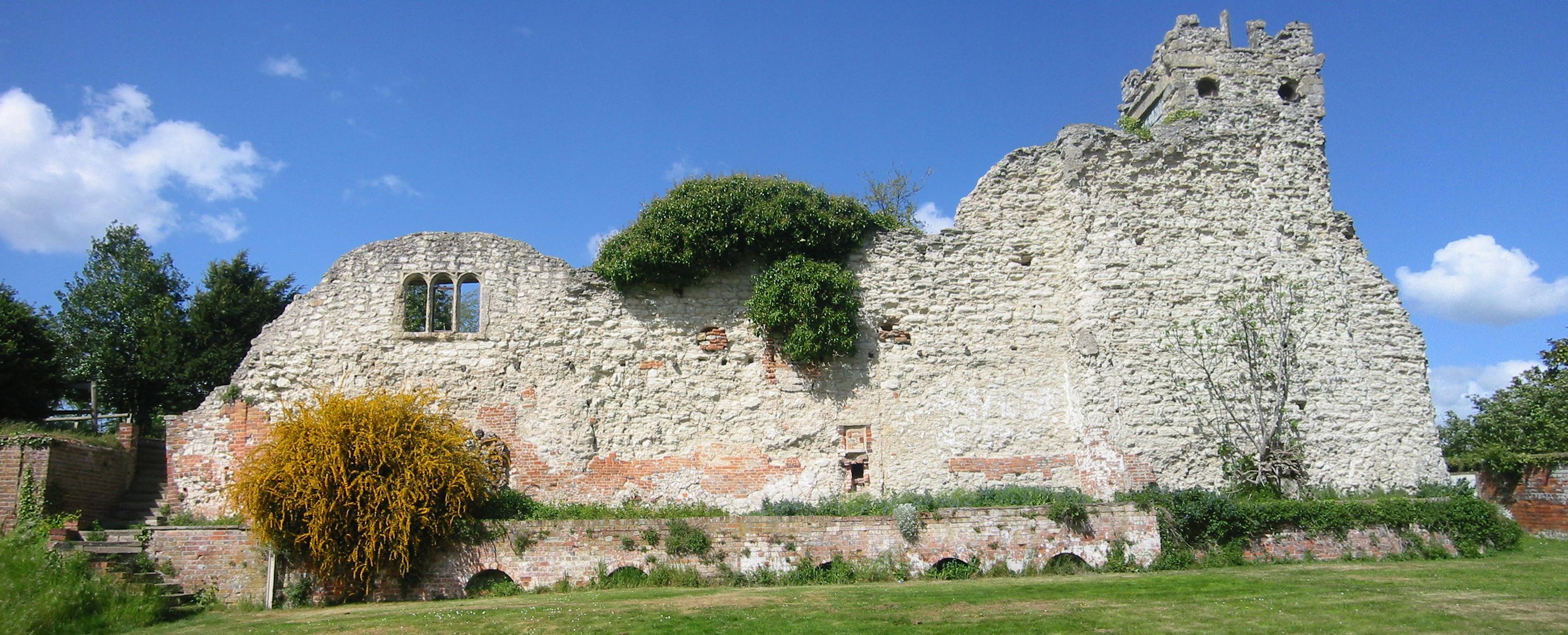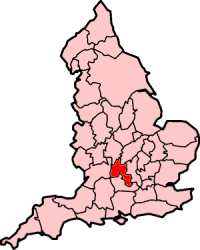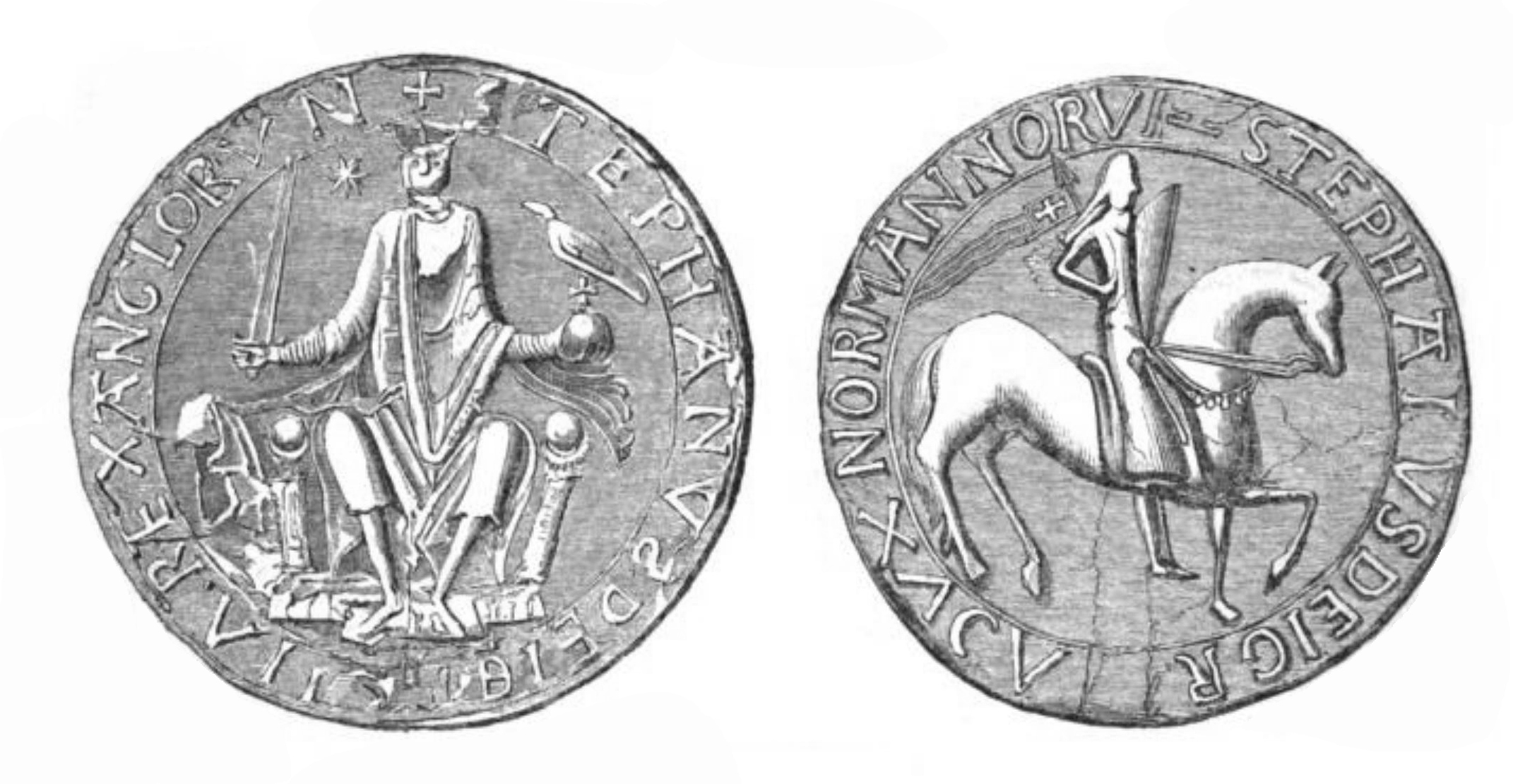 |
Treaty Of Wallingford
The Treaty of Wallingford, also known as the Treaty of Winchester or the Treaty of Westminster, was an agreement reached in England in the summer of 1153. It effectively ended a civil war known as ''the Anarchy'' (1135–54), caused by a dispute over the English crown between King Stephen and his cousin Matilda. The Treaty of Wallingford allowed Stephen to keep the throne until his death (which was to come in October 1154), but ensured that he would be succeeded by Matilda's son Henry II. Prelude to the treaty In 1153, the Anarchy had dragged on for nearly 15 years of armed combat, in which neither King Stephen nor Empress Matilda could achieve victory in the struggle for the English throne. This long period was characterised by a breakdown in law and order and allowed rebel barons to acquire ever greater power in northern England and in East Anglia, with widespread devastation in the regions of major fighting. By the early 1150s the barons and the Church mostly wanted a long-t ... [...More Info...] [...Related Items...] OR: [Wikipedia] [Google] [Baidu] |
|
Wallingford Castle Ruins
Wallingford may refer to: Places * Wallingford, Oxfordshire, England, United Kingdom **Wallingford Castle the castle * Wallingford, Connecticut, United States * Wallingford, Iowa, United States * Wallingford, Kentucky, United States * Wallingford, Pennsylvania, United States * Wallingford, Seattle, United States * Wallingford, Vermont, United States, a town ** Wallingford (CDP), Vermont, a census-designated place in the town * Wallingford station (other), stations of the name Administrative units * Municipal Borough of Wallingford * Wallingford Rural District * Wallingford (UK Parliament constituency), a former constituency, abolished in 1885 People * Brian of Wallingford, also known as Brien FitzCount * Ealdgyth of Wallingford, wife of Robert D'Oyly * Jesse Wallingford (1872–1944), British sport shooter * John of Wallingford (d. 1214), English monk and abbot of St. Albans abbey * John of Wallingford (d. 1258), English monk and chronicler * Miles of Wallingford, also ... [...More Info...] [...Related Items...] OR: [Wikipedia] [Google] [Baidu] |
|
 |
Westminster
Westminster is an area of Central London, part of the wider City of Westminster. The area, which extends from the River Thames to Oxford Street, has many visitor attractions and historic landmarks, including the Palace of Westminster, Buckingham Palace, Westminster Abbey, Westminster Cathedral and much of the West End of London, West End shopping and entertainment district. The name ( ang, Westmynstre) originated from the informal description of the abbey church and royal peculiar of St Peter's (Westminster Abbey), west of the City of London (until the English Reformation there was also an Eastminster, near the Tower of London, in the East End of London). The abbey's origins date from between the 7th and 10th centuries, but it rose to national prominence when rebuilt by Edward the Confessor in the 11th. Westminster has been the home of Governance of England, England's government since about 1200, and from 1707 the Government of the United Kingdom. In 1539, it became a city ... [...More Info...] [...Related Items...] OR: [Wikipedia] [Google] [Baidu] |
|
History Of Berkshire
Historically, the English county of Berkshire has been bordered to the north by the ancient boundary of the River Thames. However, much of the border with Oxfordshire in the western part of the county was moved in 1974. Alfred the Great was born in Wantage, historically in Berkshire, but now in Oxfordshire for administrative purposes. The Great Western Railway reached Didcot in 1839. MG (part of Morris Motors) was founded in Abingdon in 1929. The Vale of White Horse and parts of Oxfordshire south of the Thames were previously part of Berkshire, but were lost to the county in 1974. Conversely, the Slough area north of the Thames is historically part of Buckinghamshire, but became ceremonially part of Berkshire in 1974. Important historical abbeys include Abingdon Abbey and Reading Abbey. Oscar Wilde was imprisoned in Reading Gaol after his court case. The county is known as the Royal County of Berkshire since the Royal residence of Windsor Castle is within it. Politically ... [...More Info...] [...Related Items...] OR: [Wikipedia] [Google] [Baidu] |
|
 |
History Of Oxfordshire
The county of Oxfordshire in England was formed in the early years of the 10th century and is broadly situated in the land between the River Thames to the south, the Cotswolds to the west, the Chilterns to the east and The Midlands to the north, with spurs running south to Henley-on-Thames and north to Banbury. Historically the area has always had some importance, containing valuable agricultural land in the centre of the country and the prestigious university in the county town of Oxford (whose name came from Anglo-Saxon ''Oxenaford'' = "ford for oxen"). Ignored by the Romans, it was not until the formation of a settlement at Oxford in the 8th century that the area grew in importance. Alfred the Great was born across the Thames in Wantage in Berkshire. The University of Oxford was founded in 1096, though its collegiate structure did not develop until later on. The area was part of the Cotswolds wool trade from the 13th century, generating much wealth, particularly in the west ... [...More Info...] [...Related Items...] OR: [Wikipedia] [Google] [Baidu] |
|
1153 In England
Events from the 1150s in England. Incumbents *Monarch – Stephen (to 25 October 1154), then Henry II Events * 1150 ** Henry, son of Empress Matilda, becomes Duke of Normandy. ** The Anarchy: Worcester sacked. * 1151 ** Henry pays homage to Louis VII of France, and cedes Vexin to France. ** During the troubles of Stephen's reign, King Eystein II of Norway took advantage of a civil war to plunder England's east coast. * 1152 ** 18 May – Henry marries Eleanor of Aquitaine, and claims rule over Aquitaine. ** The Anarchy: King Stephen besieges the last opposition stronghold, at Wallingford. ** The Anarchy: Roger de Berkeley is dispossessed of Berkeley Castle in Gloucestershire for withholding his allegiance from the Plantagenets and the Lordship of Berkeley is granted to Robert Fitzharding, founder of the Berkeley family which will still hold the castle in the 21st century. * 1153 ** January – The Anarchy: Henry, Count of Anjou, arrives in England in a campaign against King Steph ... [...More Info...] [...Related Items...] OR: [Wikipedia] [Google] [Baidu] |
|
 |
List Of Treaties
This list of treaties contains known agreements, pacts, peaces, and major contracts between states, armies, governments, and tribal groups. Before 1200 CE 1200–1299 1300–1399 1400–1499 1500–1599 1600–1699 1700–1799 1800–1899 1900–1999 2000-Present Pending * Central American Free Trade Agreement * Free Trade Area of the Americas * Substantive Patent Law Treaty The Substantive Patent Law Treaty (SPLT) is a proposed international patent law treaty aimed at harmonizing substantive points of patent law. In contrast with the Patent Law Treaty (PLT), signed in 2000 and now in force, which only relates to forma ... (SPLT) * WIPO Protection of Broadcasting Organizations * Anti-Counterfeiting Trade Agreement Notes References External links Treaty of Peace with Japan Signed at San Francisco on 8 September 1951Treaty of Peace Between Japan and India (1952) Treaty of Peace Between Japan and the Union of Burma (1954) Agreement Between Japan a ... [...More Info...] [...Related Items...] OR: [Wikipedia] [Google] [Baidu] |
 |
Royal Charter
A royal charter is a formal grant issued by a monarch under royal prerogative as letters patent. Historically, they have been used to promulgate public laws, the most famous example being the English Magna Carta (great charter) of 1215, but since the 14th century have only been used in place of private acts to grant a right or power to an individual or a body corporate. They were, and are still, used to establish significant organisations such as boroughs (with municipal charters), universities and learned societies. Charters should be distinguished from royal warrants of appointment, grants of arms and other forms of letters patent, such as those granting an organisation the right to use the word "royal" in their name or granting city status, which do not have legislative effect. The British monarchy has issued over 1,000 royal charters. Of these about 750 remain in existence. The earliest charter recorded on the UK government's list was granted to the University o ... [...More Info...] [...Related Items...] OR: [Wikipedia] [Google] [Baidu] |
|
Kiss Of Peace
The kiss of peace is an ancient traditional Christian greeting, sometimes also called the "holy kiss", "brother kiss" (among men), or "sister kiss" (among women). Such greetings signify a wish and blessing that peace be with the recipient, and besides their spontaneous uses they have certain ritualized or formalized uses long established in liturgy. Many denominations use other forms of greeting (besides literal kisses) to serve equivalent purposes; they include handshakes, gestures, and hugs, any of which may be called a sign of peace. History It was the widespread custom in the ancient western Mediterranean for men to greet each other with a kiss. That was also the custom in ancient Judea and practiced also by Christians. However, the New Testament's references to a holy kiss ( grc, ἐν ἁγίω φιλήματι, ) and kiss of love () transformed the character of the act beyond a greeting; furthermore, in the early Church, "the verbal exchange of 'peace' with a kiss appe ... [...More Info...] [...Related Items...] OR: [Wikipedia] [Google] [Baidu] |
|
|
William I, Count Of Boulogne
William I (11 October 1159) (french: Guillaume de Boulogne) was Count of Boulogne and Earl of Surrey ''jure uxoris'' from 1153 until his death. He was the second son of Stephen, King of England, and Matilda I, Countess of Boulogne. William married Isabel de Warenne, 4th Countess of Surrey, in 1148. In 1153, Stephen agreed to pass over William's elder brother Eustace IV of Boulogne as heir to the throne, conceding the succession to Henry Plantagenet, son of his cousin and rival Empress Matilda. Eustace died shortly afterwards and when his father signed the Treaty of Wallingford, William received the lands intended for both brothers, making him immensely rich. The treaty ended the Anarchy, a succession struggle between Stephen and Matilda of which both sides were growing weary. Stephen died in 1154, and Henry initially allowed William of Blois to retain the earldom of Surrey ''jure uxoris'' (in right of his wife). However, Gervase of Canterbury asserts a plot against Henry's lif ... [...More Info...] [...Related Items...] OR: [Wikipedia] [Google] [Baidu] |
|
|
Homage (feudal)
Homage (from Medieval Latin , lit. "pertaining to a man") in the Middle Ages was the ceremony in which a feudal tenant or vassal pledged reverence and submission to his feudal lord, receiving in exchange the symbolic title to his new position ( investiture). It was a symbolic acknowledgement to the lord that the vassal was, literally, his man (''homme''). The oath known as "fealty" implied lesser obligations than did "homage". Further, one could swear "fealty" to many different overlords with respect to different land holdings, but "homage" could only be performed to a single liege, as one could not be "his man" (i.e., committed to military service) to more than one "liege lord". There have been some conflicts about obligations of homage in history. For example, the Angevin monarchs of England were sovereign in England, i.e., they had no duty of homage regarding those holdings; but they were not sovereign regarding their French holdings. Henry II was king of England, but he ... [...More Info...] [...Related Items...] OR: [Wikipedia] [Google] [Baidu] |
|
 |
Theobald Of Bec
Theobald of Bec ( c. 1090 – 18 April 1161) was a Norman archbishop of Canterbury from 1139 to 1161. His exact birth date is unknown. Some time in the late 11th or early 12th century Theobald became a monk at the Abbey of Bec, rising to the position of abbot in 1137. King Stephen of England chose him to be Archbishop of Canterbury in 1138. Canterbury's claim to primacy over the Welsh ecclesiastics was resolved during Theobald's term of office when Pope Eugene III decided in 1148 in Canterbury's favour. Theobald faced challenges to his authority from a subordinate bishop, Henry of Blois, Bishop of Winchester and King Stephen's younger brother, and his relationship with King Stephen was turbulent. On one occasion Stephen forbade him from attending a papal council, but Theobald defied the king, which resulted in the confiscation of his property and temporary exile. Theobald's relations with his cathedral clergy and the monastic houses in his archdiocese were also diffic ... [...More Info...] [...Related Items...] OR: [Wikipedia] [Google] [Baidu] |
|
Henry Of Blois
Henry of Blois ( c. 1096 8 August 1171), often known as Henry of Winchester, was Abbot of Glastonbury Abbey from 1126, and Bishop of Winchester from 1129 to his death. He was a younger son of Stephen Henry, Count of Blois by Adela of Normandy, daughter of William the Conqueror and Matilda of Flanders. Thus, he was a younger brother of Stephen, King of England, and a grandchild of William the Conqueror. Henry was also a major patron of the arts. Early life and education Henry was one of five sons of Stephen II, Count of Blois, by Adela of Normandy (daughter of William the Conqueror) and the younger brother of King Stephen.British History Online: Bishops of Winchester ; accessed on 2 November 2007 His birth date is uncertain, along with his siblings but he was the 4th or youngest son and he was mos ... [...More Info...] [...Related Items...] OR: [Wikipedia] [Google] [Baidu] |